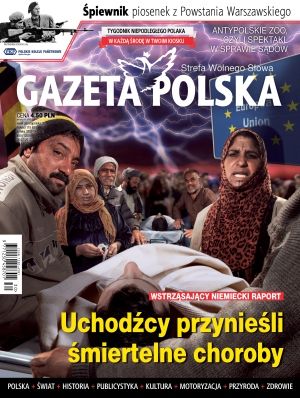The role of teaching critical thinking in the days of post-truth
What are the pillars of modern democracy and how can democracy be defended in days of crisis?
These questions keep coming to me these days, when Poland faces a really serious crisis that so far has caused a huge polarization in Polish society that divides neighbors, colleagues, friends, even families.
Being an educator for almost 30 years, teaching first young students, then teenagers and finally teachers about history, civil rights and human rights, I have realized what a huge setback the Polish educational system has suffered.

We Polish pedagogues were so proud of our way of teaching. Our students know the history so well that even if they were awake in the middle of the night they could answer questions about when and where the most important Polish battles took place. We were so proud: They know Polish romantic poems by heart. They can recite the names of all the Polish rivers and the places where coal mines are situated. More, they know how many members there are in the Polish Seym (parliament) and how many members in the Senate. They are even able to recite the definition of “qualified majority.”
And I remember when one of the teachers who attended a workshop I was leading told me that it is incorrect to analyze poetry according to the way students feel about it because there are rules they are supposed to follow and there is no place for free interpretation and feelings in that process.
And now we are collecting fruits of such education: Poles can be so easily manipulated by our rulers because they know the facts but they are unable to draw conclusions from them.
Poles know very well how Hitler came to power and what role Goebbels played in his government. They even know that prewar Germany transformed from a weak democracy to very strong dictatorship. But they cannot match these historical facts with the situation that is happening right now and right here – in Poland in 2017. They are unable to recognize or are simply deaf to the fact that Nazis were taking away democracy piece by piece and as a reward they were giving people feelings of hope based on the mad idea of building a new nation of supermen and women who will be proud of themselves and of their heritage.
Nowadays in Poland, since the populist right wing Law and Justice Party began its rule in fall 2015, the most popular slogan elaborated by their leaders is “Poland gets up from his knees.” Does this sound familiar?
This slogan goes together with party leaders’ declaration of defending Poland’s borders from the waves of immigrants who would bring dangerous diseases with them. Don’t we know that propaganda from the 1930s?
The Polish vice-minister of internal affairs calls protesters (I am among them) names, e.g., “communists, traitors and rogues” on his official Twitter account. A leader of the coalition party in Polish Parliament just passed a bill saying that the minister of justice will nominate all judges from now on. Is this an echo of something we’ve heard before?
All of these examples sound familiar for those who know how to think critically, how to draw conclusions from given information, how to build knowledge based on facts, how to recognize what is fact, what is opinion, how propaganda works and what is its goal. But, unfortunately it isn’t something that Polish students have learned for the last 26 years. Or, it was only taught by a minority of teachers, those who appreciate open minds and the creativity of their students. And that is why so many Polish citizens still believe that as long as nobody has taken their financial means away or arrested them, everything is fine and Poland is great country.
That is why I really think that the last hope is in eyewitnesses, like the genocide survivors and witnesses whose testimonies are preserved in the Visual History Archive and IWitness. They can explain from their own experiences the consequences of discrimination and treating people unequally accordingly to a sick agenda set up by people who cannot stand any differences around them. And I hope that more and more teachers will realize that and will start teaching their students to draw conclusions and connections from the stories of witnesses to history.